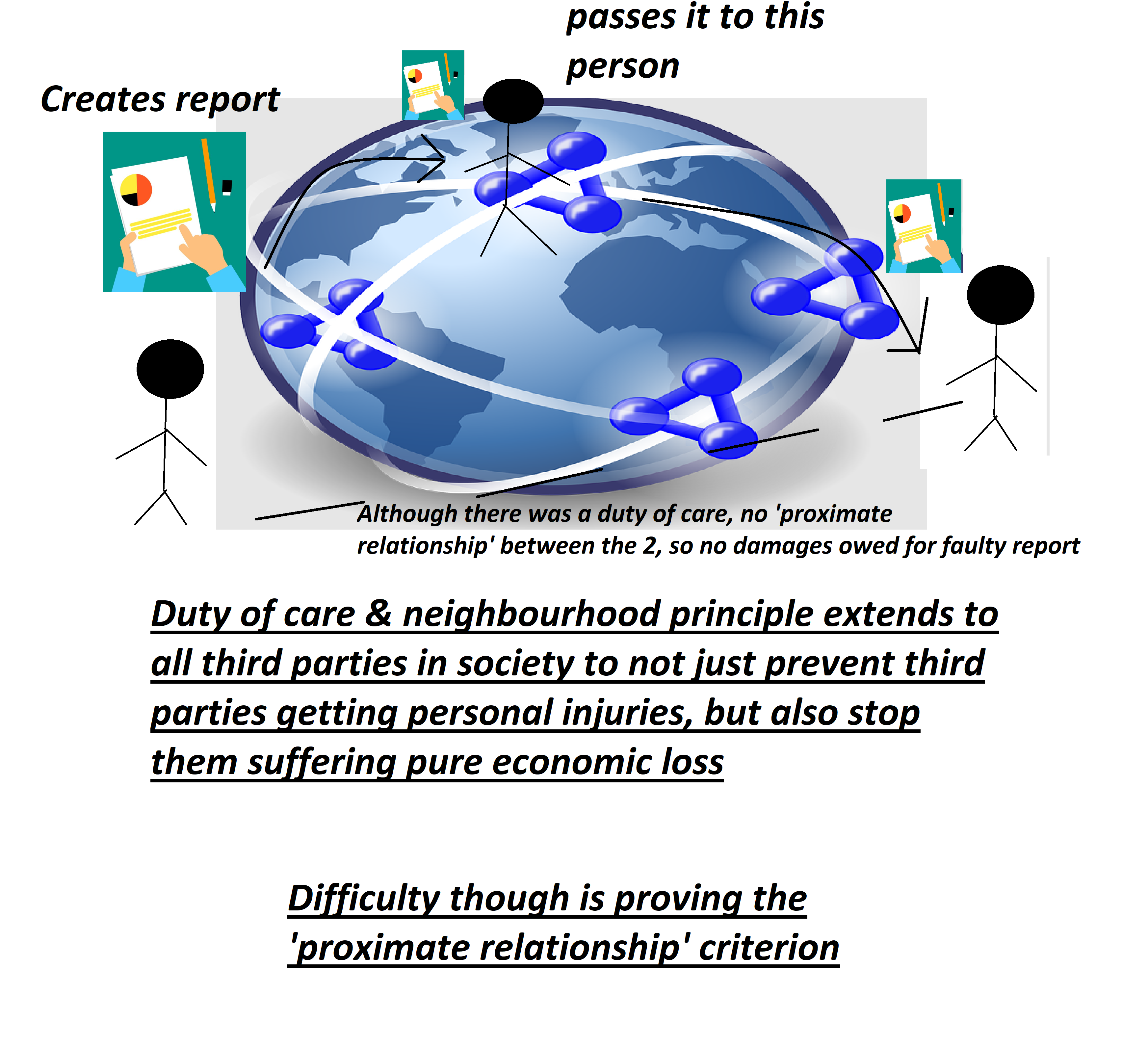Hedley Byrne & Co Ltd v Heller & Partners Ltd (1964) AC 465 (HL)
Citation:Hedley Byrne & Co Ltd v Heller & Partners Ltd (1964) AC 465 (HL)
Rule of thumb:Does the duty of care apply to only the personal injury category or does it apply to commercial law as well? The duty of care applies to both personal injury actions and commercial actions – it applies to both physical and economic injury.
Background facts:
The basic facts of this case were that Hedley Byrne were an advertising firm. They sought to provide their advertising services to a client on a credit basis, Easipower Ltd, and before doing so they asked their bank to obtain a credit report on Easipower from Easipower’s bank. Heller provided a positive credit report on Hedley Byrne’s client, Easipower, to Hedley Byrne’s bank, and Hedley Byrne’s bank passed this on to them. Easipower then went into liquidation and it turned out the credit report/ balance sheet summation provided by Heller was inaccurate.
Judgment:
The Court held that Heller would under normal circumstances be liable for the damages of this and they owed a duty of care to Hedley Byrne by default, however, Heller put a clause in the report stating that the report was only entitled to be relied on by the person they gave it directly to, namely, Hedley Byrne’s bank. The Court held that this clause was validly inserted by Heller and was sufficient to stop Hedley Byrne being able to sue them for losses sustained.
The Court held that people in society owe a duty of skill and care to all people in society, even those they do not have a contractual relationship with, to ensure that they carry out their job to a reasonable level, and if they do not, and cause a third party who was ‘reasonably entitled’ to rely upon their work purely economic damages, they will be liable to them for the damages.

Ratio-decidendi:
‘I consider that it follows and that it should now be regarded as settled that if someone possessing special skill undertakes, quite irrespective of contract, to apply that skill for the assistance of another person who relies upon such skill, a duty of care will arise. The fact that the service is to be given by means of or by the instrumentality of words can make no difference. Furthermore, if in a sphere in which a person is so placed that others could reasonably rely upon his judgment or his skill or upon his ability to make careful inquiry, a person takes it upon himself to give information or advice to, or allows his information or advice to be passed on to, another person who, as he knows or should know, will place reliance upon it, then a duty of care will arise. ... in my judgment, the bank in the present case, by the words which they employed, effectively disclaimed any assumption of a duty of care. They stated that they only responded to the inquiry on the basis that their reply was without responsibility. If the inquirers chose to receive and act upon the reply they cannot disregard the definite terms upon which it was given. They cannot accept a reply given with a stipulation and then reject the stipulation. Furthermore, within accepted principles... the words employed were apt to exclude any liability for negligence’, Lord Morris
Warning: This is not professional legal advice. This is not professional legal education advice. Please obtain professional guidance before embarking on any legal course of action. This is just an interpretation of a Judgment by persons of legal insight & varying levels of legal specialism, experience & expertise. Please read the Judgment yourself and form your own interpretation of it with professional assistance.

